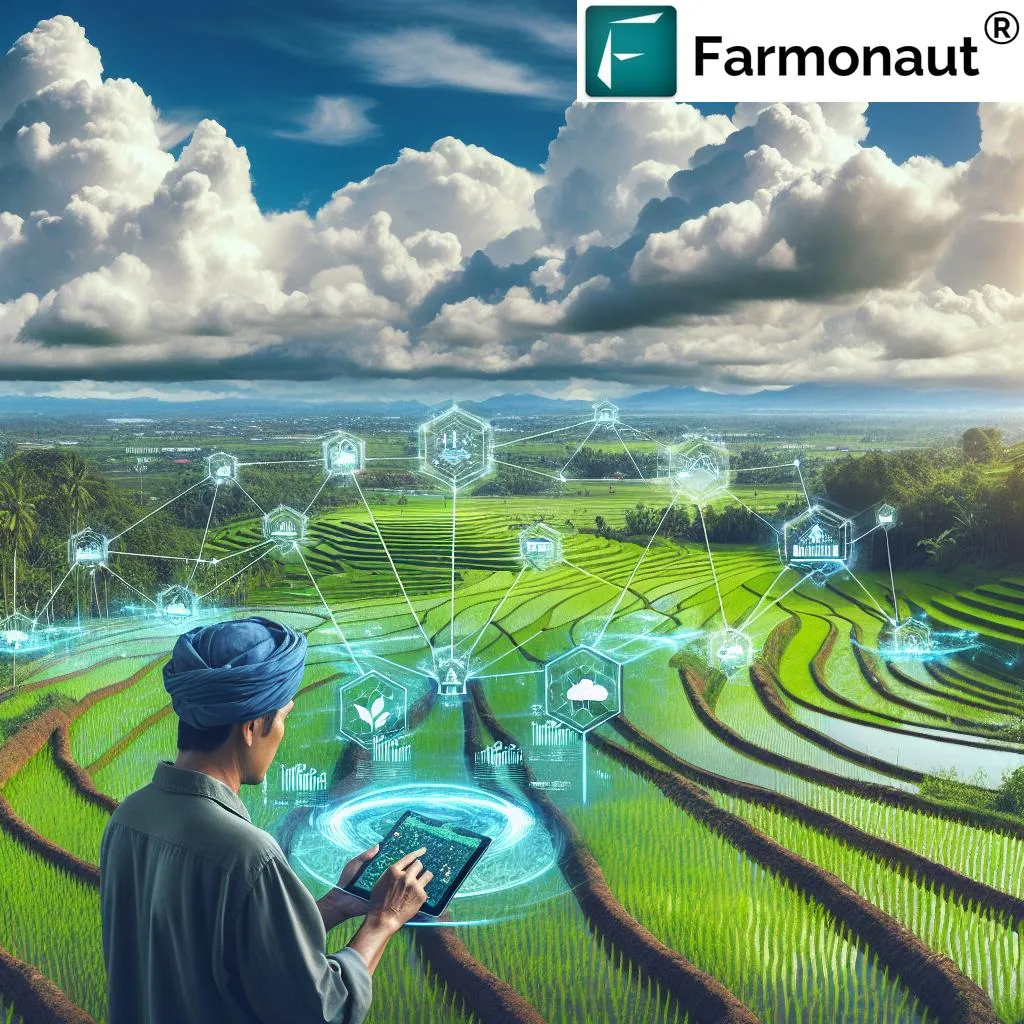In the heart of Thailand, a digital revolution is taking root, quite literally, in the rice paddies. A new smart agriculture platform, Farmdee-Mesook, is empowering smallholder rice farmers to combat climate change while boosting productivity and slashing costs. Developed by a team led by Mongkol Raksapatcharawong from the Chulabhorn Satellite Receiving Station at Kasetsart University in Bangkok, this innovative tool is a beacon of hope for sustainable agriculture in the region.
Farmdee-Mesook, which translates to “Farmdee-Wise” in English, is more than just an app; it’s a comprehensive, mobile-first platform that integrates advanced technologies like crop modeling, satellite remote sensing, and artificial intelligence. The platform provides real-time, field-specific recommendations to farmers, helping them optimize water use, reduce agrochemical inputs, and ultimately, cut down on greenhouse gas emissions.
The platform’s impact is already being felt. According to the study published in the journal Agronomy, farmers using Farmdee-Mesook have seen yield increases of up to 37%, reduced agrochemical costs by 59%, and improved water productivity by 44% under alternate wetting and drying (AWD) irrigation schemes. “The results have been remarkable,” says Raksapatcharawong. “Farmers are not only increasing their yields but also reducing their environmental footprint.”
The platform’s success lies in its simplicity and accessibility. It’s designed with the user in mind, ensuring that even smallholder farmers with limited digital literacy can benefit from its features. Moreover, it’s completely free to use, removing any financial barriers to adoption.
The implications of this research extend far beyond Thailand’s rice paddies. As climate change continues to pose urgent challenges to global food security, smart agriculture platforms like Farmdee-Mesook offer a scalable, cost-effective solution. They demonstrate that digital technologies, when tailored to the local context and supported by institutions, can be powerful enablers of climate adaptation and sustainable agricultural transformation.
In the energy sector, the reduction of greenhouse gas emissions from agriculture is a significant opportunity. As Raksapatcharawong notes, “Agriculture is a major contributor to global emissions. By optimizing farming practices, we can make a substantial dent in these emissions.”
The success of Farmdee-Mesook also highlights the potential of public-private partnerships in driving agricultural innovation. With continued support and investment, similar platforms could be developed for other crops and regions, paving the way for a more sustainable and resilient global food system.
In the face of climate change, Farmdee-Mesook stands as a testament to the power of innovation and collaboration. It’s a shining example of how technology can be harnessed to create a more sustainable future for us all.

